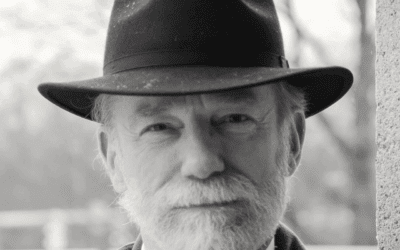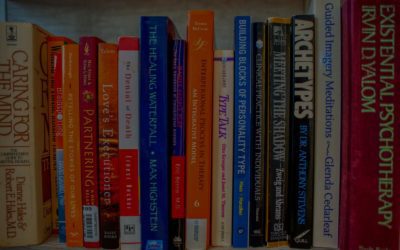Understanding the Role of Trauma and Inner Parts

When couples embark on the journey of marriage counseling, they often wonder whether the process is truly working for them. While some may experience immediate improvements in their relationship, others may feel stuck or unsure if they are making progress. To determine the effectiveness of marriage counseling, it is crucial to understand the role of trauma and how it affects individuals at different stages of their lives, entrenching certain parts of the self. Without addressing these underlying issues, marriage counseling may fail to create lasting change.
Signs That Marriage Counseling May Not Be Working
Lack of progress:
If you have been attending marriage counseling sessions for a while but feel that you are not making any significant progress, it may be a sign that the current approach is not working for you.
Persistent reactivity:
When couples continue to engage in reactive patterns and struggle to break free from the cycle of negativity, it indicates that the underlying issues have not been adequately addressed.
Focusing on external factors:
If the focus of marriage counseling remains on external factors, such as financial stress or child-rearing challenges, without delving into the deeper, internal issues, the process may not lead to lasting change.
One-sided growth: When one partner begins to heal and grow while the other remains stuck in reactionary patterns, it can lead to a parent-child dynamic that perpetuates disconnection and hinders progress.
Divorce: A Confusing and Tiring Process
Divorce is a confusing and tiring process, and most people believe they are divorcing for one reason when, in reality, they are divorcing for a completely different reason. Many individuals have one foot out the door in their marriages, but a true divorce is actually against our false self.
According to Sue Johnson’s work on divorce and marriage counseling in Emotionally Focused Therapy (EFT), two inner children often make the majority of marriage contracts. When we marry, for many, the contract is made by their needy and dependent inner child. People often think their relationships will improve once external factors change, such as paying off debt, children getting older, or kids leaving for college. However, this perspective is based on something outside of themselves changing instead of looking within.
The Importance of Self-Work Within the Relationship
To create lasting change in a marriage, individuals must start working on themselves inside the relationship, changing their patterns and reactions. As one person changes, the relationship has to change. This process is not easy, but it is effective.
When children leave for college, couples may find themselves living as roommates or experiencing worse fighting than before. The silence that comes with an empty nest can manifest loneliness in ways that are difficult to imagine when the kids are still at home.
The Impact of Childhood Relationships on Adult Partnerships
The relationships we experience as children become our models for how a relationship works. These experiences form our unquestioned, internalized template for relationships. We often recreate the relationship we had with a parent, but our partner’s character is dissimilar enough from that of our parents that the old drama carries within it the potential for a new and healthier outcome.
When one person in a relationship grows and heals, they may find that they can no longer live as their inauthentic self. They finally uncover who they really are and begin to operate from their adult self rather than their inner child. The only way a relationship can truly work is when there are two adults present.
The Parent-Child Dynamic in Relationships
If one partner heals and begins to operate from their adult self while their partner still operates from their inner child, the healed partner becomes the parent in the relationship. This parent-child dynamic is nearly as reactionary as the duo of inner children. Reactions create a disconnect, and to stop these reactions, couples must get to the root of the problem.
In our 20s, we are just beginning to learn who we are. We will change, and hopefully, we will grow, heal, and become wise. When neither partner grows, the marriage will be disastrous and mediocre. Fights will escalate, and couples may end up living as roommates.
The Challenge of Growth and Healing
Partners who are stuck in reactionary patterns and comfort zones often feel betrayed when their spouse begins to heal and grow. They want the old version of their partner, the one that reacts to them and gives them a source of constant negativity or attention through reactions.
When individuals are not taught to self-regulate, understand, and process their emotions, they may turn to coping mechanisms such as eating, drinking, gambling, shopping, or sexualizing their feelings away. When one partner decides to stop using these coping mechanisms or becomes sick of the unrest, their partner may try to sabotage their efforts.
The hardest thing for the healing partner is to stay the course and not get sucked back into old patterns while gently guiding their partner to heal themselves.
The Path to Authentic Connection
Achieving a truly fulfilling marriage requires both partners to operate from their authentic, adult selves. This involves acknowledging the impact of trauma, understanding the role of inner parts, and committing to personal growth and healing.
Marriage counseling can be a powerful tool in this process, providing couples with the insights and tools they need to break free from reactionary patterns and build a relationship based on genuine connection and understanding. By addressing the underlying issues that drive conflict and disconnection, couples can create a strong foundation for a lasting, loving partnership.
However, it is crucial to recognize that marriage counseling alone may not be sufficient without a deep understanding of how trauma affects individuals at different ages and how it entrenches certain parts of the self. By exploring common marriage counseling issues through the lens of depth psychology, schema therapy, and IFS, therapists can help couples uncover the root causes of their struggles and develop effective strategies for growth and healing.
Incorporating Sue Johnson’s work on divorce and marriage counseling in EFT can further enhance the effectiveness of the therapeutic process, as it emphasizes the importance of creating secure emotional bonds between partners and addressing the underlying attachment needs that drive relational distress.
How to Pick a Marriage Counselor
Marriage counseling is a complex and multifaceted process that requires a deep understanding of the impact of trauma, the role of inner parts, and the dynamics of childhood relationships in shaping adult partnerships. By acknowledging these factors and committing to personal growth and healing, couples can break free from reactionary patterns, overcome the challenges of divorce, and build authentic, fulfilling relationships based on genuine connection and understanding.
Through the integration of insights from depth psychology, schema therapy, IFS, and EFT, therapists can provide couples with the tools and insights they need to navigate the complexities of marriage and create lasting, positive change in their relationships.
You can book a session with our marriage counselor, James Waites here.


























0 Comments